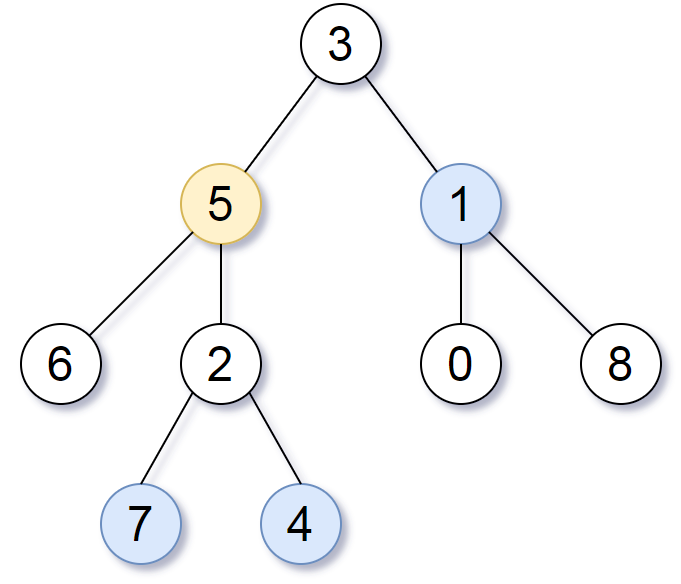All Nodes Distance K in Binary Tree
Problem
Given the root of a binary tree, the value of a target node target, and an integer k, return an array of the values of all nodes that have a distance k from the target node.
You can return the answer in any order.
Example 1:

Input: root = [3,5,1,6,2,0,8,null,null,7,4], target = 5, k = 2 Output: [7,4,1] Explanation: The nodes that are a distance 2 from the target node (with value 5) have values 7, 4, and 1.
Example 2:
Input: root = [1], target = 1, k = 3 Output: []
Constraints:
- The number of nodes in the tree is in the range
[1, 500]. 0 <= Node.val <= 500- All the values
Node.valare unique. targetis the value of one of the nodes in the tree.0 <= k <= 1000
Solution
/**
* Definition for a binary tree node.
* function TreeNode(val) {
* this.val = val;
* this.left = this.right = null;
* }
*/
/**
* @param {TreeNode} root
* @param {TreeNode} target
* @param {number} k
* @return {number[]}
*/
var distanceK = function(root, target, k) {
// generate undirected graph from node (DFS)
const graph = [];
const generateGraph = (node, parent) => {
if (!node) {
return;
}
while (!graph[node.val]) {
graph.push([]);
}
if (parent) {
graph[node.val].push(parent.val);
graph[parent.val].push(node.val);
}
generateGraph(node.left, node);
generateGraph(node.right, node);
}
generateGraph(root, null);
// find kth level nodes using target as root (BFS)
const queue = [target.val];
const visited = [];
for (let level = 0; level < k && queue.length; level++) {
const n = queue.length;
for (let i = 0; i < n; i++) {
const u = queue.shift();
visited[u] = true;
for (const v of graph[u]) {
if (!visited[v]) {
queue.push(v);
}
}
}
}
return queue;
};
We will implement a BFS and DFS solution. We first create an adjacency undirected graph graph of the tree root with DFS. Using graph, we can simply do a level order traversal with BFS and return all nodes that are on the kth level.